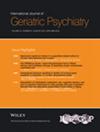Exploring Socio-Economic Differences and Developer Medical Involvement of Dementia-Related English Version Mobile Health Applications
Abstract
Introduction
The rise of mobile health interventions offers significant potential to improve the well-being of the aging global population, particularly individuals at an increased risk of dementia. To fully leverage this potential, it is crucial to evaluate the mobile health applications across different demographic and socio-economic landscapes. This study investigated the relationship between a country's development status and the quality of dementia-focused mobile health applications, as well as the influence of developers' medical expertise on app quality and perceived impact.
Methods
This cross-sectional observational design study utilized the uMARS tool to evaluate the objective and subjective quality of dementia-related mobile health applications. Objective quality was assessed across engagement, functionality, aesthetics, and information domains, while subjective quality included user recommendations, anticipated usage, and perceived impact. A stratified random sampling method selected 17 apps for evaluation, and inter-reviewer reliability was confirmed (Kendall's W = 0.143, p = 0.045). Data analysis involved descriptive statistics, independent sample t-tests, and Pearson's correlation coefficients, with statistical significance set at p < 0.05.
Results
Among the 51 dementia-related mobile health app analyzed, only one was developed in a low-income country. Additionally, this study found a linear correlation between the perceived impact of a mobile health app for dementia and the medical background of the development team, with a Pearson correlation coefficient of t = 3.708 (p < 0.001). Engagement was highly correlated with subjective quality (Pearson correlation coefficient r = 0.955, p < 0.001), and there was a strong correlation between the information provided by the apps and the perceived impact (Pearson correlation coefficient r = 0.884, p < 0.001).
Conclusion
The adoption of mobile health apps must be prioritized to assist individuals with dementia and their caregivers in low income countries. Future apps should focus on improving engagement and involving medical experts in development to increase credibility and utilization across socioeconomic levels and healthcare systems.

 求助内容:
求助内容: 应助结果提醒方式:
应助结果提醒方式:


